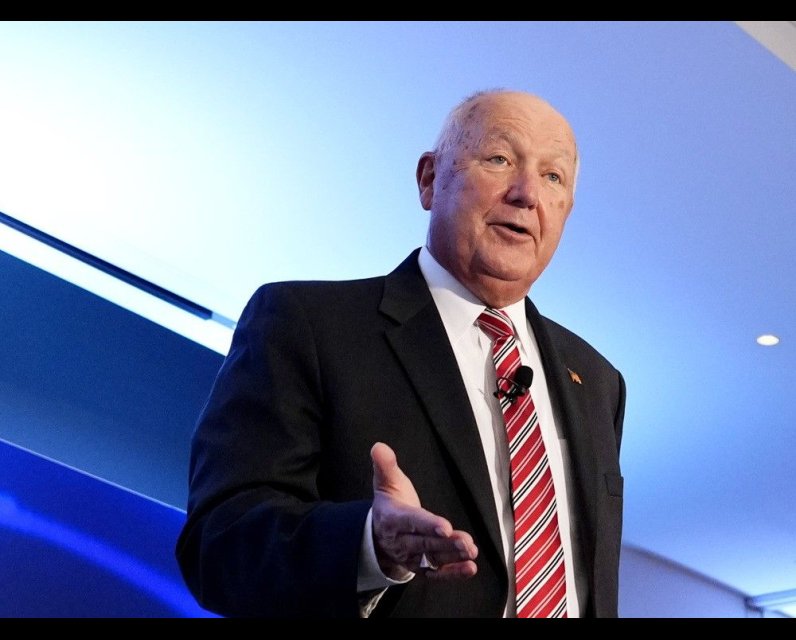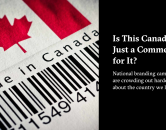Source Feed: National Post
Author: Simon Tuck , Stuart Thomson
Publication Date: June 30, 2025 - 15:06
EXCLUSIVE: With digital tax scrapped, U.S. ambassador says he's 'confident we will have an agreement'
June 30, 2025

OTTAWA — With Canada’s digital services tax now scrapped, a free trade deal between Canada and the Unites States is just a question of time, U.S. Ambassador Pete Hoekstra told National Post on Monday.
In an exclusive interview, Hoekstra said he’s not sure if trade talks between the North American neighbours can be resolved by July 21, a target agreed to by the two leaders when they met in mid-June in Kananaskis, Alta. But the ambassador said he’s very confident that a deal will get done.
“We will get to an agreement. The only question is how long will it take,” he said in an interview. “I’m confident we will have an agreement.”
Hoekstra emphasized that free trade between Canada and the U.S. is good for both countries, but that policies such as Canada’s now-defunct digital services tax are irritants that get in the way.
He said the tax, however, was not the only trade irritant irking the U.S. Others include provincial policies that have pulled American alcohol off store shelves and other anti-competitive measures that make it difficult for U.S. companies to compete in this market. U.S. President Donald Trump has also made it clear that he doesn’t like Canada’s supply management policies protecting the dairy and poultry industries because they make it difficult for American producers to compete in the Canadian market.
“There’s lots of issues that need to be covered. Some of them are going to be tougher than others,” Hoekstra said. “The important thing is that this really sets the table.”
Prime Minister Mark Carney told reporters on Monday that he had always expected the digital services tax to be a casualty of the trade negotiations with the U.S., so it was pointless for the government to collect that tax revenue.
“It’s something that we expected, in the broader sense, that would be part of a final deal,” said Carney, without explaining why the decision to scrap the tax was made only hours before it came into effect at midnight on Sunday.
“It doesn’t make sense to collect tax from people and then remit them back, so it provides some certainty. And as I just said, negotiations have restarted. We’re going to focus on getting the best deal for Canadians. We’re making progress,” said Carney.
Canada’s digital services tax was considered a big deal to the U.S., Hoekstra said, because it unfairly targeted American big tech companies. The tax was raised consistently by the U.S. in every recent conversation about trade, he added.
But Carney called Trump Sunday to say that he would be cancelling the tax, just two days after Trump insisted that the U.S. would walk away from trade talks with Canada and impose retaliatory tariffs if the tax wasn’t killed. The first digital services tax payments were due Monday, although they were to be retroactive to 2022.
Hoekstra said the upcoming trade talks may face more hurdles but that both sides want a deal. “We’ve done this with the Canadians for years. I expect we’ll be able to do it again.”
Trump had said on Friday he was ending trade negotiations with Canada due to the tax, which would have targeted major U.S. tech companies like Amazon and Google.
“Based on this egregious Tax, we are hereby terminating ALL discussions on Trade with Canada, effective immediately. We will let Canada know the Tariff that they will be paying to do business with the United States of America within the next seven day period,”
Trump wrote, on his social media network
Truth Social.
Conservative Leader Pierre Poilievre said the Liberal government shouldn’t have scrapped the digital services tax without a concession from the Americans.
“The tax is gone for good. In exchange, the Prime Minister should insist that the U.S. immediately rescind softwood lumber tariffs. We need to make gains for our workers in these talks,”
wrote Poilievre, on social media
.
On Monday, White House Press Secretary Karoline Leavitt described the Canadian government’s decision to rescind the digital services tax as a big win for the United States.
“It’s very simple. Prime Minister Carney and Canada caved to President Trump and the United States of America. And President Trump knows how to negotiate,” said Leavitt.
National Post,
with files from the Canadian Press
Our website is the place for the latest breaking news, exclusive scoops, longreads and provocative commentary. Please bookmark nationalpost.com and sign up for our politics newsletter, First Reading, here.
Good morning. Welcome to a special Canada Day edition of our newsletter. Canadians across the country are celebrating the holiday with defiant displays of national pride. Plus, a look at the next generation of homegrown researchers. But first:Today’s headlines
July 1, 2025 - 07:22 | Abigale Subdhan | The Globe and Mail
Halifax-based master artisan pizzaiolo Cédric Toullec says he was shocked when he found out he had been named one of the top 100 pizza chefs in the world.
July 1, 2025 - 07:15 | Globalnews Digital | Global News - Canada
The rise in nationalist sentiment since Donald Trump’s second inauguration has been extraordinary. Flags fly higher. Political speeches lean harder into “Canadian values.”
Nationalism is inherently interesting. There are varieties: left, right, civic, ethnic. There are different, competing definitions. There are benign, if cloying, manifestations and malignant ones. As a sentiment and a commitment, it’s important to examine and understand nationalism since it’s also a kind of currency that can be spent, or a force that can be mobilized, and not necessarily for good. Indeed, nationalism...
July 1, 2025 - 06:30 | David Moscrop | Walrus


Comments
Be the first to comment